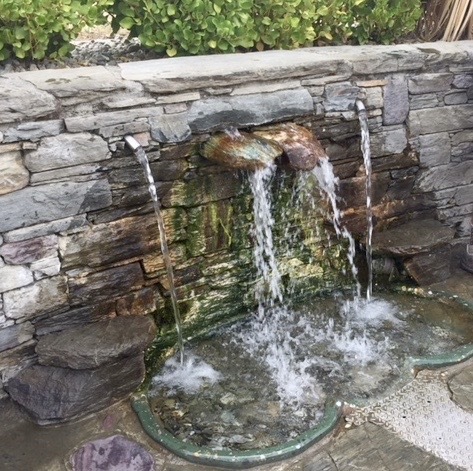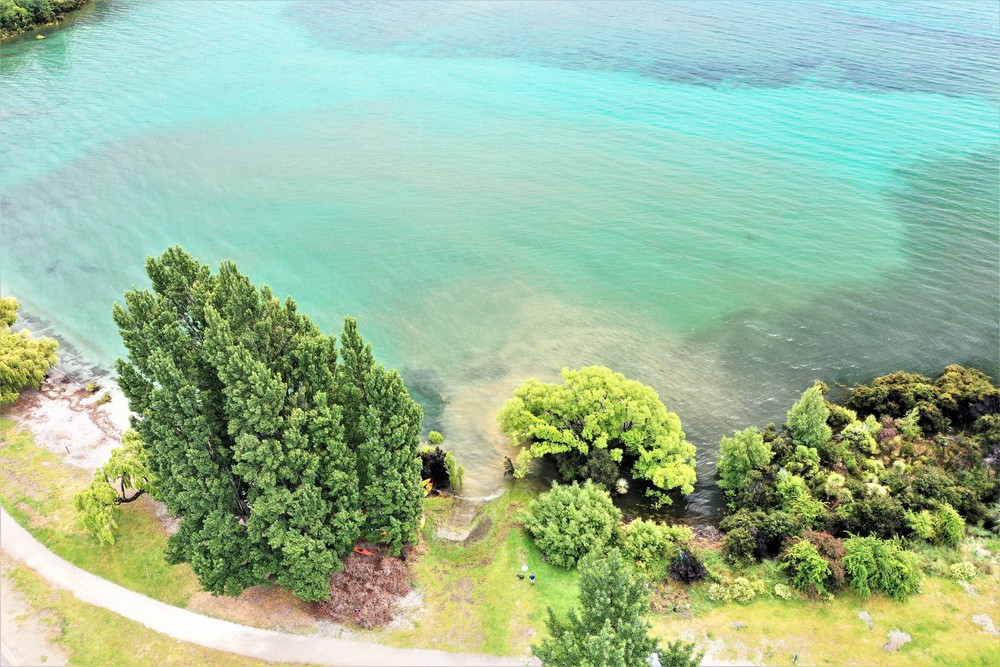In or Out on Three Waters reform: QLDC yet to decide
Diana Cocks
22 August 2021, 6:04 PM
 The management of the local infrastructure which draws drinking water from Lake Wānaka would be managed by a board, not council, under the proposed reforms. PHOTO: Wanaka App
The management of the local infrastructure which draws drinking water from Lake Wānaka would be managed by a board, not council, under the proposed reforms. PHOTO: Wanaka AppLocal government councils throughout the country are struggling to make a decision over the government’s proposed Three Waters Reform (3Waters) and, like many other councils, the Queenstown Lakes District Council (QLDC) remains undecided.
Wanaka-based QLDC councillor Quentin Smith acknowledged there is a need to reform 3Waters (drinking, storm and wastewater) services, but said "the devil is in the detail".
“This is a significant issue and will have an enormous impact on the way three waters’ services are provided, how much they cost, who controls them, and on the very way councils [will] function,” Quentin said.
The case put forward is that local government will struggle to invest sufficiently to meet the necessary standards for water and wastewater compliance, he said.
“There is some truth to this; it is a massive challenge. The need for reform isn’t widely questioned, but the devil is in the detail. At this stage we have [seen] very little to give us confidence.”
Proposed Three Waters Reform
Local government minister Nanaia Mahuta has linked years of underinvestment in 3Waters infrastructure by the country’s 67 councils with outbreaks of deadly bacteria in drinking water; lead contamination; regular boil-water notifications; and poorly treated wastewater running into freshwater streams and lakes.

Local spring water like this on Lakeside Road could also be managed separately. PHOTO: Wanaka App
Billions of dollars of funding is needed now for essential upgrades to meet new health standards and councils will be unlikely to afford this level of investment to avoid future crises, she said.
"Without this change, communities are going to either face very large bills for water services; or infrastructure will continue to degrade with ongoing health and environmental consequences. Both of these outcomes are unacceptable," she said.
Instead, it’s proposed that the management of all councils’ 3Waters services be transferred to four regional entities, beginning from July 1 2024, but ownership of the infrastructure assets would remain in councils' hands.
The four publicly owned entities, three in the North Island and one covering most of the South Island, would be run by independently appointed boards.
The South Island board would comprise two stakeholder groups; one stakeholder is 27 councils representing 1.5 million people; the other is Ngai Tahu as mana whenua. Both stakeholders would have equal rights overseeing new 3Waters services.
In July, the government announced a $2.5 billion package to support local government transition through the reforms and to “ensure that no council is worse off as a result of the reforms,” prime minister Jacinda Ardern said.
QLDC position on the reforms
Most councils agree that water reform is needed but the lack of detail about exactly how the four new boards would operate has made councils cautious or critical of the government’s proposal.
Quentin said QLDC councillors did not feel they had a clear picture of the implications and operations of the proposed reforms.

Reforms are proposed to counter future stormwater discharges like this into the Clutha River. PHOTO: Supplied
“There are lots of unanswered questions,” he said, particularly concerning how the boards will be administered/governed; whether the community would have a meaningful say in management; where the value and equity of the accrued infrastructure sits; and what impact will this have on the broader function of local government.
Quentin said the validity of the data provided by the Department of Internal Affairs (DIA) in support of the reforms was questionable.
“We currently have reason to question the accuracy of the assumptions of the DIA dashboard and the scale of potential efficiencies and savings for our communities, and are doing our own work to verify that.”
He said insufficient reliable information means the QLDC cannot even fully advise its communities so they can make an informed decision.
“It’s hard to make a judgement call from an uninformed position.”
As a result, the QLDC doesn’t “have the confidence to make a decision or even to consult with our community in a meaningful way on the proposals”.
Nationwide reaction
Each of New Zealand’s 67 councils has until December to opt out of the proposed reforms.
Christchurch mayor Lianne Dalziel said it was "difficult to yet see a compelling case for change" and Whangārei mayor Sheryl Mai said her council needed to ensure its ratepayers were not disadvantaged from being part of any reform but the lack of detail in the reforms meant it would opt out at this stage.
Auckland’s council said it had already invested in its water systems and amalgamating its assets with other councils would not benefit Aucklanders.
Federated Farmers Otago provincial president Mark Patterson contacted southern councils to express its members' concerns with the reforms and to “strongly encourage all our local councils to put this decision to a [public] referendum”.
The way forward: Opt in or out
There has been considerable debate across all communities about the proposed reforms.
“I think people are right to be concerned and interested and wanting to have a say in this important decision," Quentin said.
As for the $2.5 billion “carrot” package, it has value in the short-term and will form part of the cost benefit assessment of the viability of the proposed reforms but it doesn’t bind the QLDC to a specific position, he said. “There has to be some benefit for council to participate.”
Meanwhile, more detail is needed before the QLDC can make an “stay in/opt out” decision and council “is committed to making that decision with its community,” he said.
Whether the QLDC remains part of the reform or “opts out” there are significant implications and councils cannot choose to do nothing, Quentin said.
“It is certainly one of those situations where there is no status quo outcome.”





